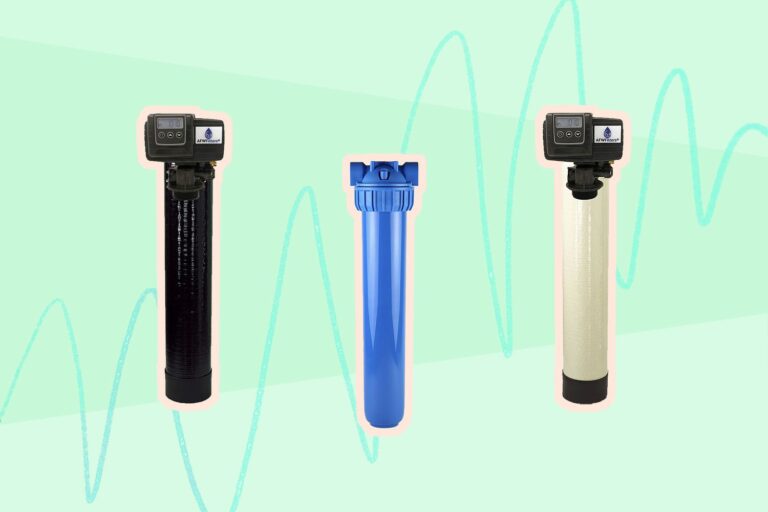Many households are combating the hard water problem. It has negative effects on health and can complicate the performance of the appliances that run on water. Not to mention the stains it leaves on all surfaces, which are very hard and time-consuming to remove. But, no need to worry, because there’s a solution for this too, it’s called the water softener.
Before we explain how it works, you must learn what is “hard water”? It is water in which the total amount of dissolved minerals, especially calcium and magnesium, is above certain limits.
How does water softener help, then?
It simply removes the hardness. When it does, it simultaneously extracts almost all traces of iron, manganese, lead, cadmium, barium, radium, strontium, beryllium, aluminum, and other metal cations. Thus, making the soft water ideal both for the human body and household.
Let’s explore a little bit about how and where the water softener system is useful…
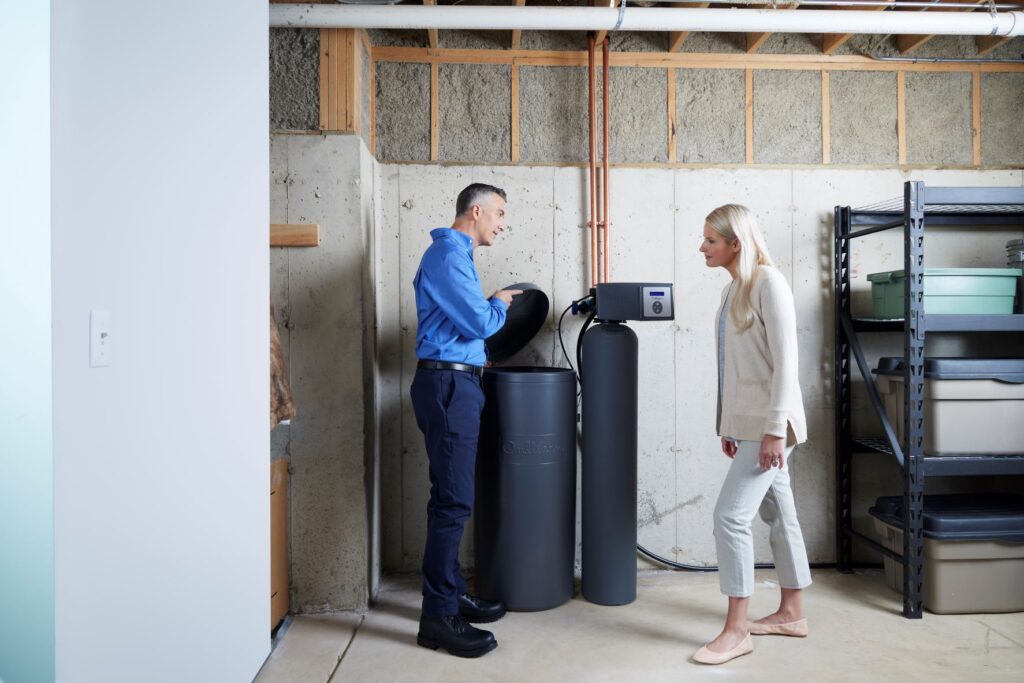
It is a system that can be installed anywhere – for domestic water softening needs, as well as for the needs of smaller commercial or industrial systems that require water to be softened. The devices are compact because the softener itself is placed in a container that also serves as a reservoir of tableted salt for regeneration, which significantly reduces the space it takes. The operation and regeneration of the softener are fully automated under the control of the automatic control valve. Regeneration can be programmed in time, or in volume after softening a certain amount of water.
The choice of the method of regeneration is made after learning about the circumstances in which the softener will work and the water hardness. Maintenance is kept to a minimum, to control the amount of tableted salt with occasional replenishment. Such a system is definitely worth installing, and you can check the prices at householdmag.com.
What happens to the water inside this system?
When water passes through the mass contained in the softener, an ion exchange process takes place, in which calcium ions are exchanged with sodium ions, which does not harm installations or the human body. The mass is automatically regenerated after saturation every few days and during that time the accumulated scale goes to the sewer or other drain. Regular maintenance is not necessary in most cases, because the devices are automated, only the addition of tableted salt is mandatory. Salt consumption depends on water consumption and water hardness, but this cost compared to the benefits it brings is negligible.
To further prove how valuable it is, here are 9 health and efficiency benefits water softener provides.
1. Limescale disappears from the water, you get clean and soft water
We’ve mentioned how limescale can cause stains everywhere – dishes, tiles, kitchen elements, which probably you already know. Aside from that, hard water seriously damages kidneys.
2. Water softener extends the life of your home appliances and reduces the cost of repairs and spare parts
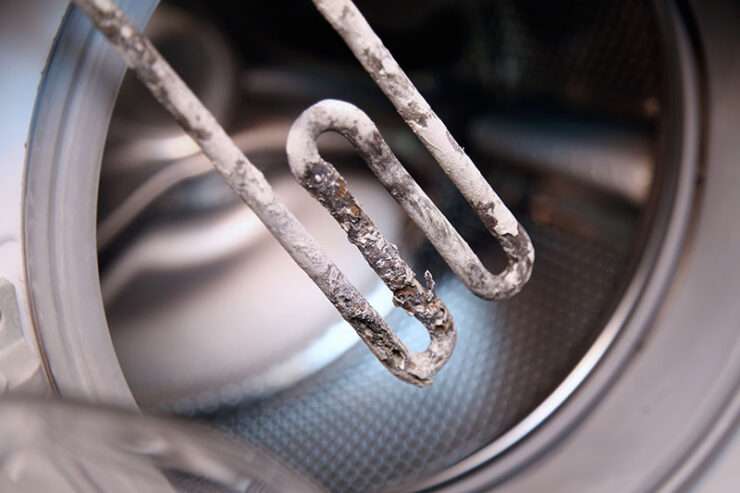
One particular element of your household is extremely sensitive to hard water, and that is your washing machine. Be it clothes or dishes, it is very likely that you will have to call the maintenance guy a couple of times a year. Installing a softener will therefore save you tons of money you would otherwise spend on repairs.
3. Stains from mineral deposits on showers, showers, sinks, and dishes are filtered out of your water
No need to search for a product that will remove stains. Your kitchen and bathroom will both look immaculate and shiny.
4. You can save more than 50% on detergent, cleaning products, shampoos, washing gels, etc
Clean, soft water washes better. There were times when households used to collect rain and wash clothes with it because it was much softer than the running water in the house. So, you can definitely expect to spend less on washing supplies. Without mineral deposits, your goods will last longer
5. Water softener reduces skin problems and irritations
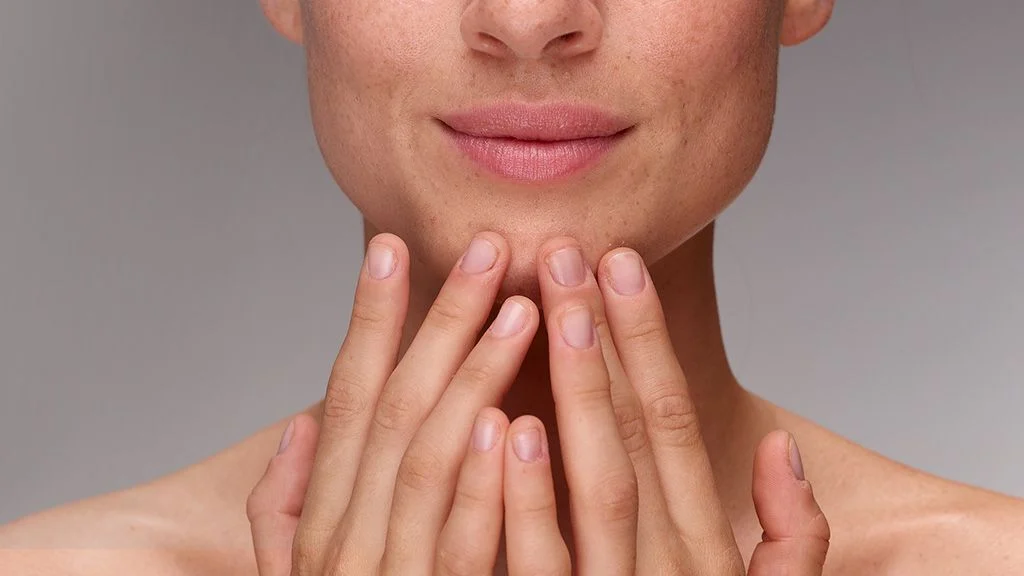
We hardly ever think about how hard water affects our skin, and that the itching sensations may be caused by it. With the softener, there will be no dry itching sensation and your skin will breathe naturally, becoming soft and healthy.
6. Drinking water will taste pleasant
Ever wondered why bottled water tastes better than the tap water? Now you know the answer.
7. Quality time for yourself
You will have more free time as cleaning is easier and does not require hours of work.
8. Energy efficiency
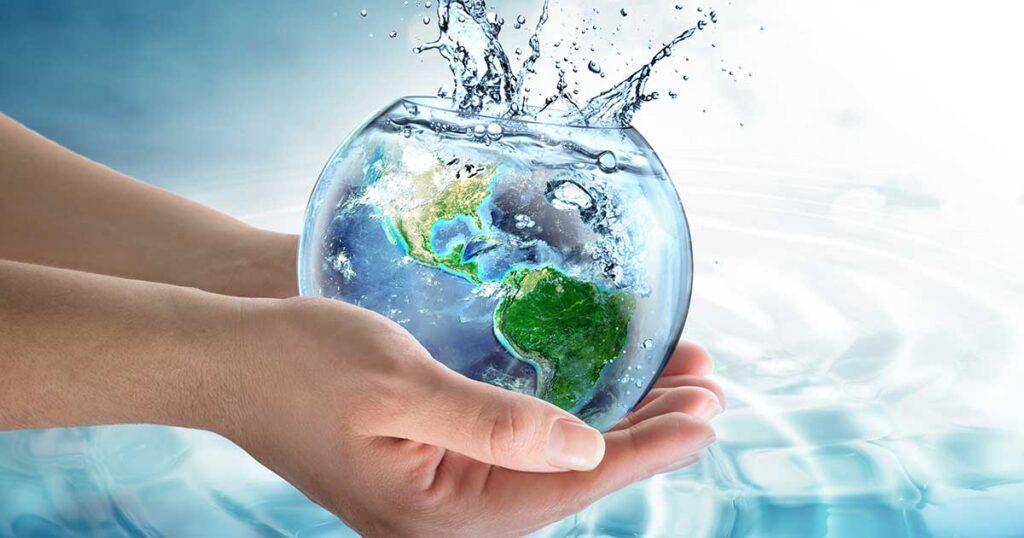
Water softener improves the efficiency of your heating system and reduces heating costs by 20%. The savings you get on electricity consumption, heating costs are much greater than buying a water softener. Even more, a family of four will pay off the water softener in 2-4 years.
9. When it comes to businesses, the benefits of having soft water are visible instantly
Here are some concrete examples of soft water efficiency:
- In catering services glasses should not be wiped after drying, because there are no limescale stains on them.
- In bakeries, limescale does not accumulate on the seams (pipes around the heater with small holes that spray the heater and create water vapor that gives the necessary moisture to the dough), otherwise production must be stopped from time to time and the seams cleaned with chemicals.
- In heating facilities, limescale does not accumulate on heaters and heat exchangers, which necessarily leads to an increase in energy consumption, because the heater is lined with limescale.
- Hotels that have their own laundries use much less detergent for a better washing effect.
- Car washes also use much less detergent, and vehicles do not have to be wiped with a special cloth, as no stains remain.
- Hospitals reduce energy costs and avoid problems with the maintenance of devices and medical equipment.
This list of benefits can be extended with many other industries (laboratories, glass production, greenhouses, wellness, etc.). There is almost no area where the benefits of softened water are not visible. Therefore, when planning to renovate, build or purchase a home of your own, it should be one of the priority criteria.

